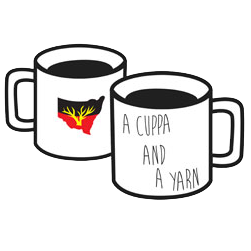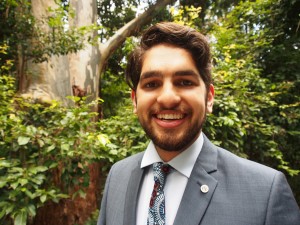29 May, 2015
“Land Rights to me is a way for people to accumulate wealth; I find with Aboriginal people, it’s often something which is cheapened…”
I’m Matthew West, I’m a 23 year old Wiradjuri man, living and working on the Central Coast of NSW and I’m a member of the Darkinjung Local Aboriginal Land Council.
I’m a podiatrist, currently completing the honours part of my degree and teaching at the Newcastle University. I would like to complete my PhD in five years and I’ve also just enrolled in a Bachelor of Medicine. I hope to publish a paper to really raise the profile of lower limb health within our mob.
Podiatry is a field which is often overlooked, I believe I’m one of four Aboriginal podiatrists in the whole country but it’s an area which really does affect our people. I think anyone you talk to has had an Aunty or Uncle, who, just before they died – lost a leg – which is something I’m currently researching at the moment and the statistics about how it affects our people is absolutely appalling.
Diabetes is a really big issue for our people. I’m not sure if it’s commonly talked about, even in my own health field, but Aboriginal people are 30 more times likely to have an amputation from a foot complication caused by diabetes than non-Aboriginal people. That means for every 3 people, 4.8 Aboriginal people will be in that higher risk category. When we start to extrapolate the numbers, it’s just massive.
So I think trying to address those issues around diabetes and just general foot care like checking our feet and to ensure you go and see someone early on if you have a pain or something, keeping on top of our sugars and also just as a general rule – going to see a podiatrist regularly.
Land Rights to me is a way for people to accumulate wealth; I find with Aboriginal people, it’s often something which is cheapened. Aboriginal people are seen as people who take handouts or if you try and accumulate wealth you’re being seen as greedy but that’s not the case.
This is a way for us to really go about securing our Independence and being self determinate. We can’t do that if we continue to rely on a government to fund what we need, we should be using the Land Rights Act as a means to accumulate our own wealth, to educate our own people, keep us healthy, house us, all the things which a government takes a lot of responsibility for but isn’t doing correctly.
Here on the Central Coast, in the last Census, the median age of the Non- Indigenous population was 41. The median age of the Aboriginal population was 20, so we really are looking at a very young demographic and that means we have a lot of potential in us and the future is most important to us.
We need to be Independent and self determinate and the way to do that is the Land Rights Act. This means that in order to secure that future wealth, that future potential, that future opportunity, we really have to be looking at the Land Rights Act now and putting it at the top of our agenda.
Land to me is my connection to home, my connection to this land, to this country but we live in a place that is very different to what even our grandparents lived in, so trying to reconcile those two things can be very hard for an Indigenous person. You know, I myself struggle because people say the second you get land, you sell it or the second you get land, you concrete over it. But we don’t live in a world where we can just have this freehold land anymore, this beautiful bush, we live in a world where we have to survive and provide for our own people who are being mistreated in the community that they currently live in. Land to me is means for us to free ourselves, to be independent and self determinate. Land for me is a way for us to achieve equality which society will never give us. It’s something we have to earn and take for ourselves.


